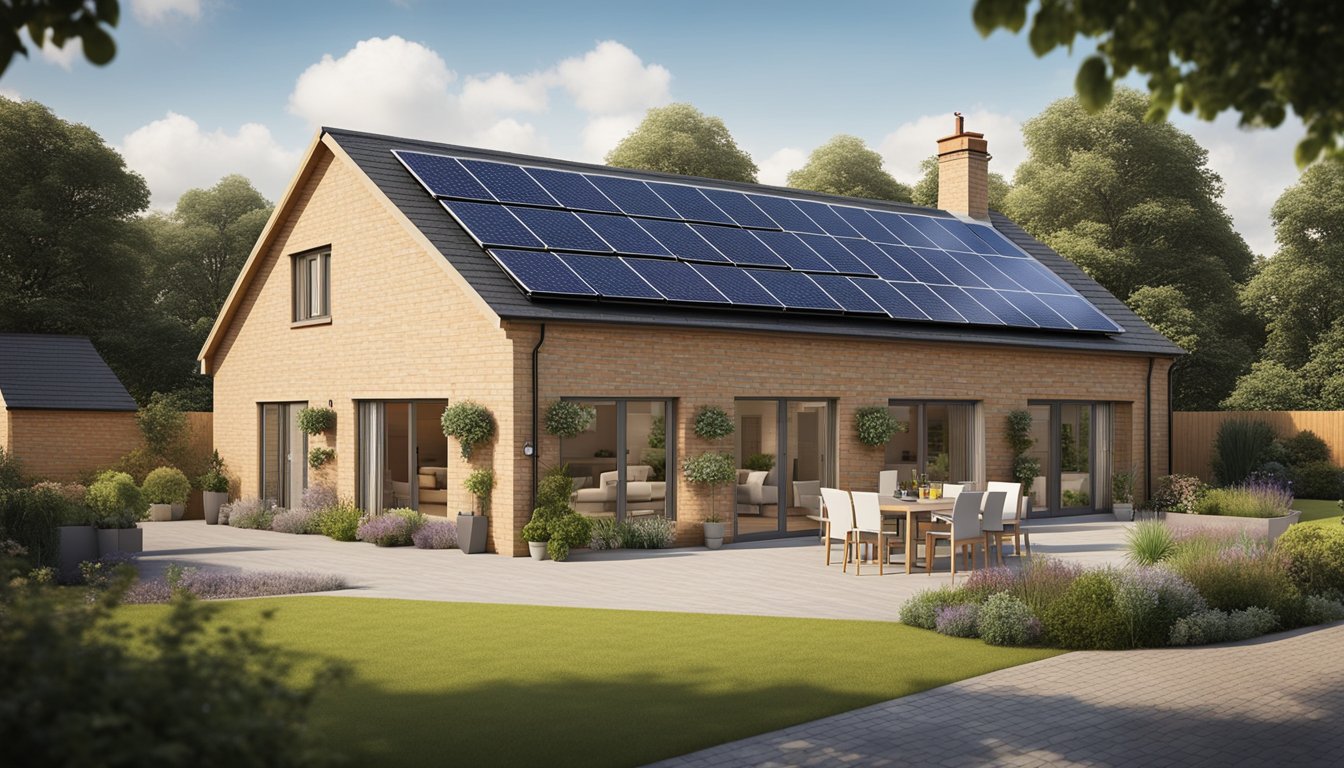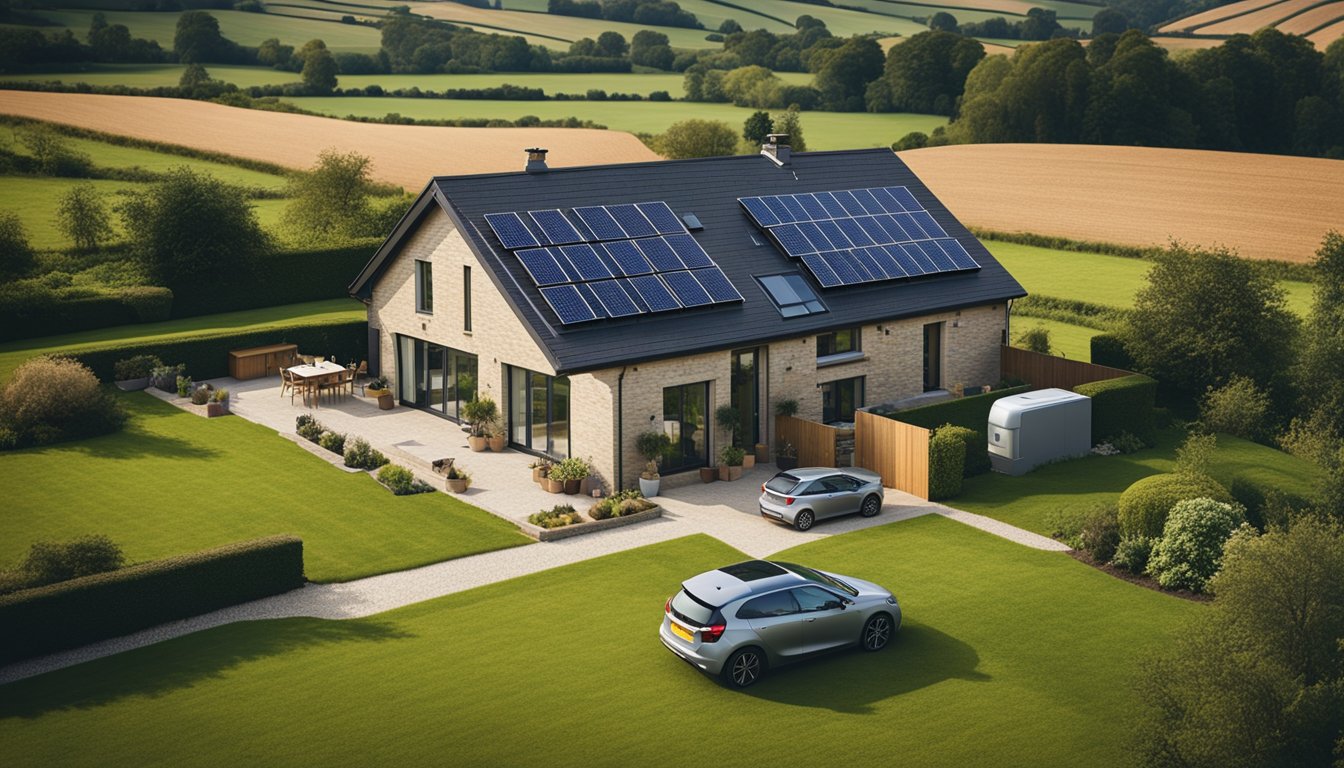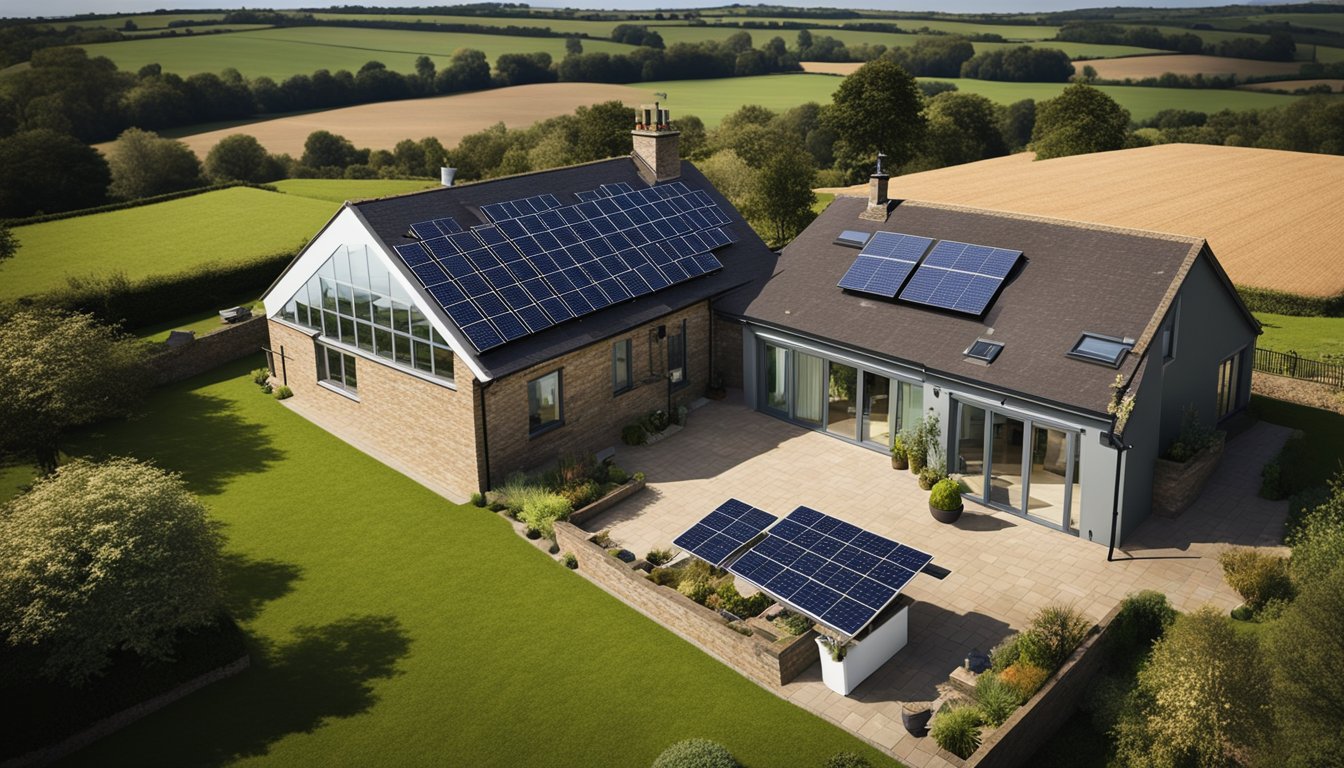Late updated: 12 Oct 2024 08:10
Written by: Oliver Bennett
Smart Energy Management For Rural UK Homes: Innovations and Opportunities
Exploring the potential for smart energy management in rural UK homes opens up pathways to a more sustainable and energy-efficient future. Given the increased reliance on traditional heating fuels and typically less energy-efficient homes in rural settings, the introduction of modern smart technology can lead to significant improvements in energy usage. Integrating smart local energy systems provides diverse benefits, including optimised energy consumption and increased reliance on renewable sources that can mitigate climate change impacts.

Projects across the UK are demonstrating how innovative technologies, such as smart grids and meters, can address unique rural challenges. By enabling these systems, rural communities have the opportunity not just to reduce their energy costs but also to create local jobs, thereby empowering economic growth. The government's investment in local energy projects underscores the importance of this transition towards green energy.
As the conversation around net-zero grows, our engagement with these smart systems will only deepen, ultimately transforming how we understand and utilise energy in our homes. Our exploration into this topic will reveal actionable insights and highlight how every rural household can become a part of this smart energy revolution.
Key Takeaways
- Smart systems optimise rural home energy use.
- Government support boosts local energy projects.
- Renewables reduce climate impact in rural areas.
Framework for Smart Energy Management in Rural UK

Our approach to smart energy management in rural UK focuses on optimising energy efficiency and integrating renewable energy sources. By leveraging smart technologies, rural homes can reduce carbon footprints and energy costs while contributing to a sustainable environment.
Understanding Energy Systems in Rural Contexts
Rural UK areas often rely on traditional energy systems which can be less efficient and more costly. The unique characteristics of these regions include dispersed housing and limited infrastructure, impacting overall energy consumption patterns. Innovation in these areas is paramount. For instance, government-funded programmes like Prospering from the Energy Revolution aim to enhance energy systems' sustainability and efficiency. Understanding these dynamics allows us to tailor solutions that meet the specific needs of rural communities.
The Transition to Renewable Energy Sources
Transitioning to renewable sources in rural UK is essential for achieving net zero targets. Solar panels and wind energy are key contributors to this shift. It is important to consider the environmental benefits, as well as the potential for reduced reliance on fossil fuels. Government incentives and funding play a crucial role in facilitating this transformation. Adoption of such technologies helps rural homeowners lower energy costs and reduce carbon emissions, aligning with broader decarbonisation goals.
Role of Smart Meters and Smart Devices
Smart meters and devices are pivotal for efficient energy management. They provide real-time data on energy usage, empowering homeowners to make informed decisions. By automating systems through IoT technology and smart appliances, we can optimise energy consumption and increase efficiency. Smart devices enable seamless integration with renewable energy sources, ensuring a smarter, more sustainable energy system for rural homes. These technologies also provide insights that can inform future innovations and improvements.
Importance of Insulation and Efficient Home Design
Achieving energy efficiency in rural homes necessitates emphasis on insulation and design. Proper insulation reduces energy consumption by maintaining internal temperatures more effectively. Additionally, designing homes with energy efficiency in mind—such as incorporating passive solar design elements—can lead to significant savings. Such measures not only reduce the carbon footprint but also lower heating and cooling costs. By adopting these practices, we address both immediate energy challenges and long-term sustainability objectives.
Systems and Technologies for Optimised Energy Usage

As we explore ways to enhance energy efficiency in rural UK homes, integrating smart technology and effective energy storage solutions is essential. These innovations can help improve energy management, reduce energy bills, and contribute to a sustainable future.
Integrating Smart Grid Technologies
Integrating smart grid technologies into rural homes allows for more efficient energy supply and usage. By utilising real-time data, smart grids can balance electricity demand with supply, helping to prevent the overloading of the National Grid. Digitalisation plays a key role in this process, as it facilitates the communication between various components of the energy system.
Rural communities benefit from this modernisation, ensuring that energy distribution is both reliable and economic for everyone involved. Smart local energy systems further enhance these benefits by sourcing clean energy from localised and renewable resources. This integration not only promotes green energy but also supports local energy projects, giving residents more control over their consumption patterns.
Energy Storage and Distribution Solutions
Effective energy storage and distribution are crucial for maximising the benefits of smart technology in rural homes. Battery storage systems offer solutions that can store excess energy for later use, which is particularly beneficial when paired with renewable energy sources like solar panels or wind turbines. Heat pumps also contribute to this ecosystem by reducing dependency on conventional heating fuels.
These systems reduce peaks in electricity usage and contribute to lowering energy bills. Residents experience increased autonomy over their energy supply, especially during periods of high demand or grid outages. With adequate funding and support, rural areas can establish resilient energy networks, enhancing the efficiency and reliability of energy distribution.
Support and Guidance for Homeowners
Homeowners need clear guidance to successfully implement and manage these smart technologies in their homes. Companies like Octopus Energy offer support tailored to rural requirements, helping customers understand the potential of smart grids and storage solutions. Funding initiatives and educational resources are vital to empower property owners in making informed decisions.
Social housing sectors can also leverage these technologies by integrating modern energy systems into their structures. These efforts ensure that the transition to greener energy solutions is inclusive and accessible to all segments of society. Guidance and support are essential elements that facilitate smoother transitions, encouraging broader adoption of innovative energy systems.
Frequently Asked Questions

In this section, we explore strategies for optimising energy use in rural UK homes, integrating renewable resources, and improving energy efficiency with smart technology. We also discuss monitoring techniques and financial incentives available for rural communities adopting energy management systems.
What methods can be employed to optimise energy consumption in rural British households?
Optimising energy use in rural UK homes can begin with enhancing insulation and upgrading to energy-efficient appliances. Using programmable thermostats to better manage heating schedules is also key. Implementing time-of-use tariffs can encourage shifting energy-intensive activities to off-peak hours.
How can renewable energy resources be integrated into rural energy management systems in the UK?
Rural homes can benefit from solar panels and small-scale wind turbines. These renewable sources can be combined with battery storage systems to ensure a constant energy supply. Additionally, connecting to local renewable energy cooperatives can provide shared benefits.
What are the best practices for monitoring and controlling energy use in remote UK properties?
Installing smart meters is an effective practice, as they offer real-time insights into energy consumption. These devices can display usage on in-home displays, helping residents track and adjust their energy use. Remote monitoring systems can further aid in overseeing energy use from a distance.
Which technologies are most effective for enhancing the energy efficiency of rural homes in the United Kingdom?
Heat pumps, smart meters, and energy-efficient lighting are all technologies that significantly enhance energy efficiency. Insulation improvements, particularly in older buildings, also play an essential role. Combined, these technologies can lead to substantial energy savings.
How does the installation of smart devices affect the power usage in off-grid UK residences?
In off-grid settings, smart devices enable precise energy tracking and more efficient use of power resources. These systems allow residents to monitor energy production and consumption, optimising renewable resource use. The data provided by smart devices can help adjust energy usage patterns effectively.
What are the financial incentives for adopting energy management systems in rural areas of the UK?
The UK government offers various incentives, such as the Energy Company Obligation (ECO) scheme, to support energy efficiency improvements. Additionally, grants and subsidies are available for the installation of renewable energy systems and smart technologies, making it more accessible for rural homeowners to adopt modern energy management solutions.
